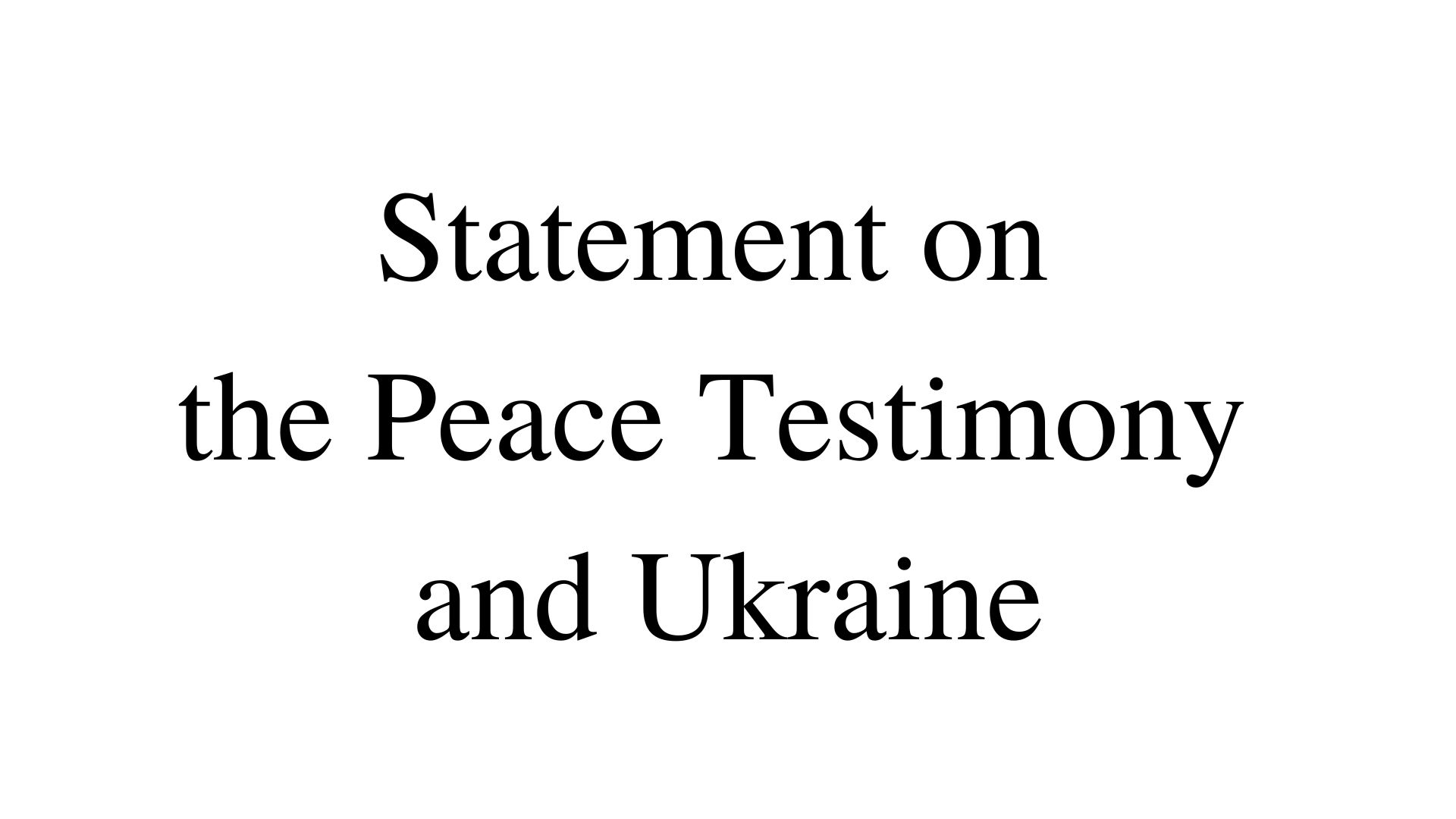Quakers are a people who follow after peace, love and unity. Our peace testimony is our witness to the Truth as we experience it.
Our testimony manifests as a cumulative set of actions, continually tested and added to over centuries. These actions are diverse in form, but have been broadly united by: 1) Refusal to kill, 2) Relief of suffering, 3) Building the institutions of peace, and 4) Supporting peacebuilding and removing the causes of war.
At the onset of the full scale invasion of Ukraine by Russia, the Friends World Committee for Consultation issued a Christian Call for Peace, affirming that invasion and occupation are the opposite of Christ’s universal call to reconciliation and unity, and echoing church statements in many countries, including Ukraine, calling for an immediate ceasefire replaced by a peacemaking dialogue. This call would echo the Golden Rule which is a foundational value of all major world religions, has the potential to eliminate violence and helps us to recognize one another.
Almost by definition peacemaking often involves engaging with people making war, and understanding the reasons they do so. Nevertheless our vocation as a peace church is to seek and make real the peaceful alternatives to armed conflict which with God’s help are possible, and to ensure that the long lasting human costs of war are not forgotten or neglected.
We continue to uphold the right to refuse to kill. We stand with conscientious objectors on all sides of this conflict, with the people in Russia who stand up against their leaders’ belligerent actions, and the people in Ukraine employing creative forms of nonviolent civil resistance.
We continue to help relieve suffering, and hold that all nations must radically improve their approach to welcoming refugees, to fully honor the United Nations’ Refugee Convention and ensure that all displaced people – no matter their origin – have access to civil, political, economic, social and cultural rights. We will continue to press for this.
We continue to seek to build the institutions of peace. Justice with peace requires binding frameworks of international law and restorative justice, as well as global investment in violence prevention at the community level. We know that all of these have been insufficient to prevent the injustice in Ukraine, and must be strengthened to win peace.
And we continue to support peacebuilding measures. We call on the governments of Ukraine, Russia, neighbouring countries, the United States, NATO and the European Union, to explore all avenues – whether public or private – for a renewed conversation to address the human security needs of all the peoples and countries in the region, to help provide the basis for long term peace.
Whichever way this war ends, we are realistic that healing and sustainable peacemaking will in all likelihood take more than a generation, and will only be possible through inclusive and sustainable processes from the national to the local. That process must begin now.
We are ready to play our part.
Signed by,
Timothy Gee, General Secretary, Friends World Committee for Consultation
Nozizwe Madlala-Routledge and Sarah Clarke, Directors, Quaker United Nations Office
Bridget Moix, General Secretary, Friends Committee on National Legislation
Joyce Ajlouny, General Secretary, American Friends Service Committee
Oliver Robertson, General Secretary, Quaker Peace and Social Witness
Jennifer Preston, General Secretary, Canadian Friends Service Committee
Tracey Martin, Director, Quaker Council for European Affairs







